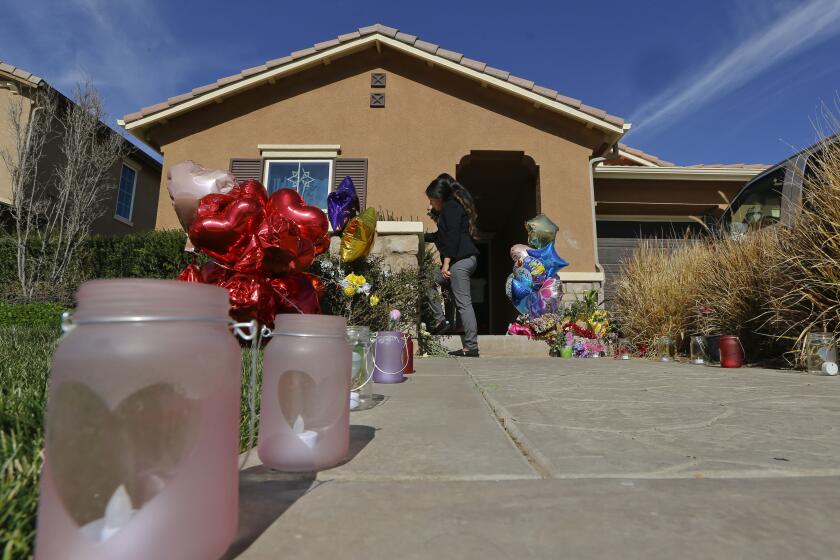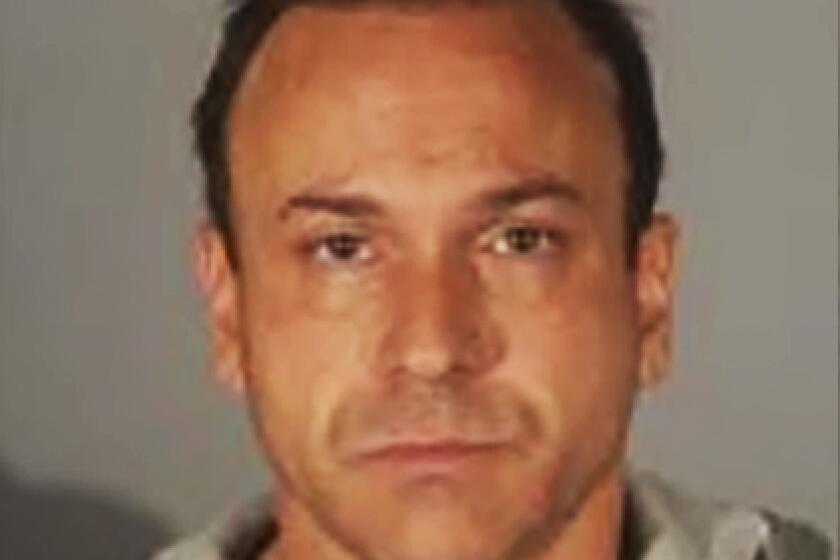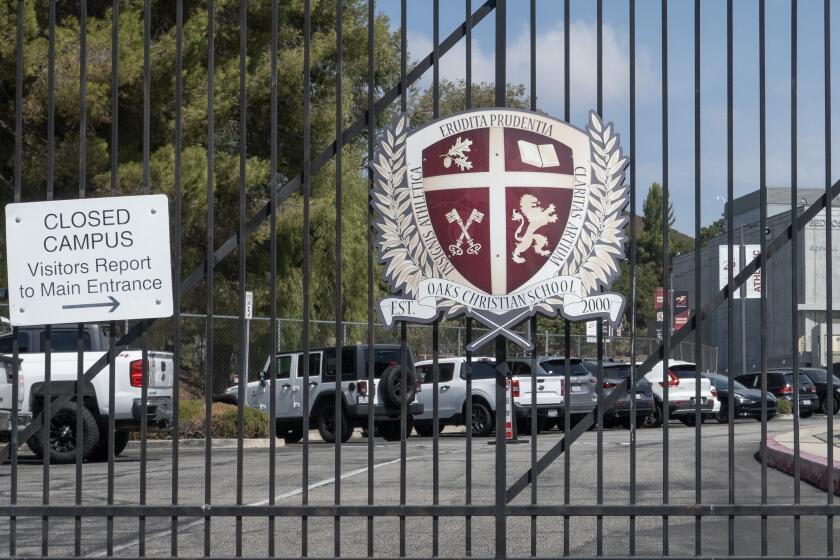Old Mistake Costs City $250,000 : Developer Paid to Drop Plans for Some Apartment Units
Council Resolution R-250954.
It was the kind of paper work that could easily be lost in the flow of memos, reports and requisition forms that consumes San Diego municipal government.
In fact, it was.
That was seven years ago. And on Monday, the City of San Diego paid dearly for that goof when the council, hoping to buy the goodwill of angry residents, took the unusual step of paying a developer $250,000 in cash to drop plans for 18 apartment units from his development near downtown.
The payment is part of a bizarre legal settlement between the city and Thomas Carter over his proposed Golden Hill Villas condominium-apartment complex on six acres at the end of Ash Street, property that dips into the 34th Street canyon.
The agreement permits Carter to build 90 apartment units on the site, but will pay him a quarter-million dollars by April 30 if he abandons plans for 18 apartments allowed as a “density bonus” under a state law to promote low-income housing. That lowers the total to 72 units in the project.
In return, Carter has agreed to drop a lawsuit against the city that could have given him the right to build 90 to 112 units on the property, collect an estimated $350,000 in damages, and force the municipal treasury to pay for legal fees that could have reached $1 million. He also has agreed to revise his project and dedicate an extra seven-tenths of an acre as open space.
All this, because somebody at City Hall made a boo-boo.
“Somebody in the bowels of city government made a mistake, a stupid mistake,” said Councilman William Jones.
The mistake was made in 1979, when the previous owner of the canyon property applied for permission to build 86 apartment units. Golden Hill residents registered vigorous protests, saying the development was on a canyon, the apartments clashed with the single-family neighborhood and the anticipated traffic would further burden the neighborhood’s streets. The City Council voted to limit density to 72 units.
That decision was contained in council Resolution R-250954.
Normally, those kinds of restrictions are part of a subdivision map that is recorded at the county recorder’s office, said Assistant Planning Director Mike Stepner. That way, the stipulation is part of the public record and shows up when someone does a title search.
But not this time. The council restrictions were part of a vote on the environmental impact report on the project, an odd place for such a restriction, Stepner said.
“Unfortunately, the staff had an oversight and that’s the crux of the problem,” he said.
It wasn’t until Carter went to the city in December, 1984, to obtain building permits for 112 units--the number allowed by the zoning on his property--that the omission came to light. The Building Inspection Department discovered the 72-unit limit and refused to grant the permit, touching off a fight that prompted Carter to sue the city in February, 1985.
He lost in Superior Court. But a ruling in July by Judge Mack P. Lovett left Carter a loophole to build more units under a state program that gives builders a 25% density bonus if they include low-income housing in their developments. Although the city could limit Carter to 72 units, he could build 18 more under the state low-income program.
That’s when city attorneys and Carter started talking settlement. Carter had a good case, because of the city’s mistake, to win the right on appeal to build as many as 112 units. If he didn’t win the appeal, he could still build 90 legally.
Meanwhile, Golden Hill residents threatened to sue if the city didn’t keep its word by limiting the number to 72. Period.
“It’s going to cost us either way,” said Jones, who at one time suggested buying the property outright from Carter. “It’s going to cost us $250,000 now or that much in attorney’s fees from any one of two lawsuits, either from the developer or the residents.”
Thus, the unusual deal. At first, Carter offered to take the money and build 78 units, but Jones and others said the city took a hard line and insisted on the 72 units. The city agreed to pay for any additional fees Carter would have to pay to process his application, another $15,000.
When the wrangling was over and the compromise struck, nobody Monday seemed overjoyed.
Carter walked grim-faced from the council chambers on the 12th floor of City Hall and over to the elevator, declining to comment. “I’m tired,” he said.
Council members wondered aloud if the payment would created a precedent. Council members Jones and Abbe Wolfsheimer and acting Mayor Ed Struiksma admitted the city’s mistakes in handling the matter.
And the handful of Golden Hill residents at the meeting muttered under their collective breath when the council voted for the settlement. One woman called out that it was a “coverup.” Spokesman Keith Simon called it a victory for residents, but an expensive lesson for the city.
“The city really doesn’t get anything for its money. What is the city getting?” Simon said. “The only thing they’re getting is they’re not going to court. In my eyes, it’s a payoff.”
More to Read
Sign up for Essential California
The most important California stories and recommendations in your inbox every morning.
You may occasionally receive promotional content from the Los Angeles Times.










